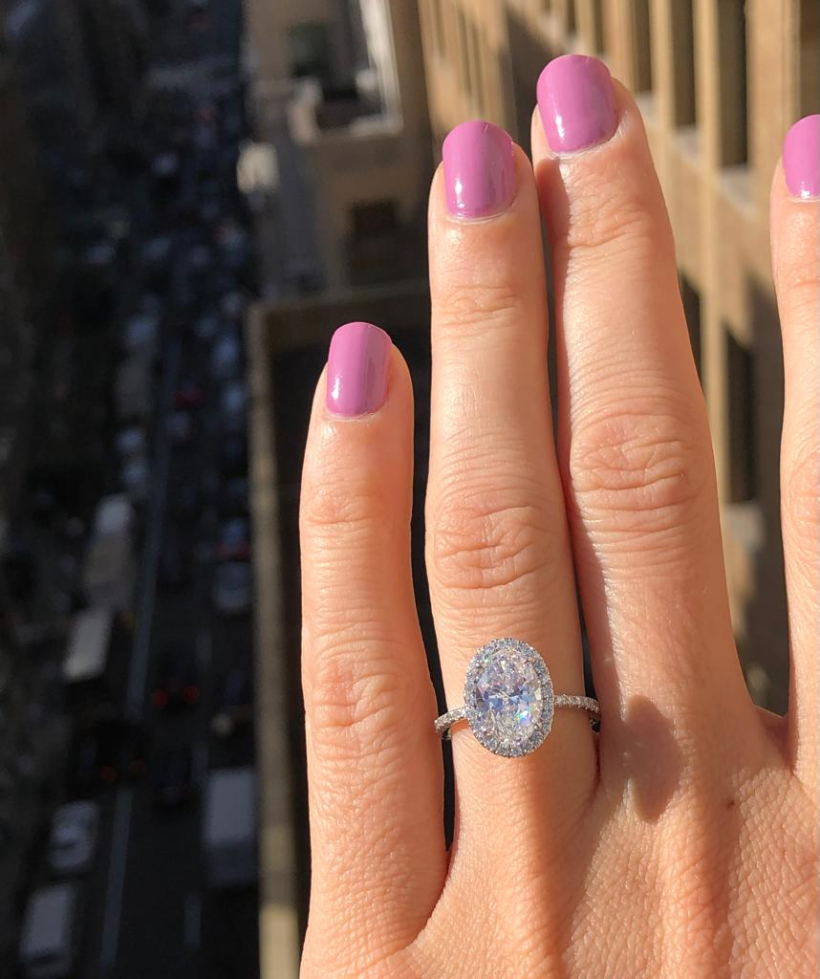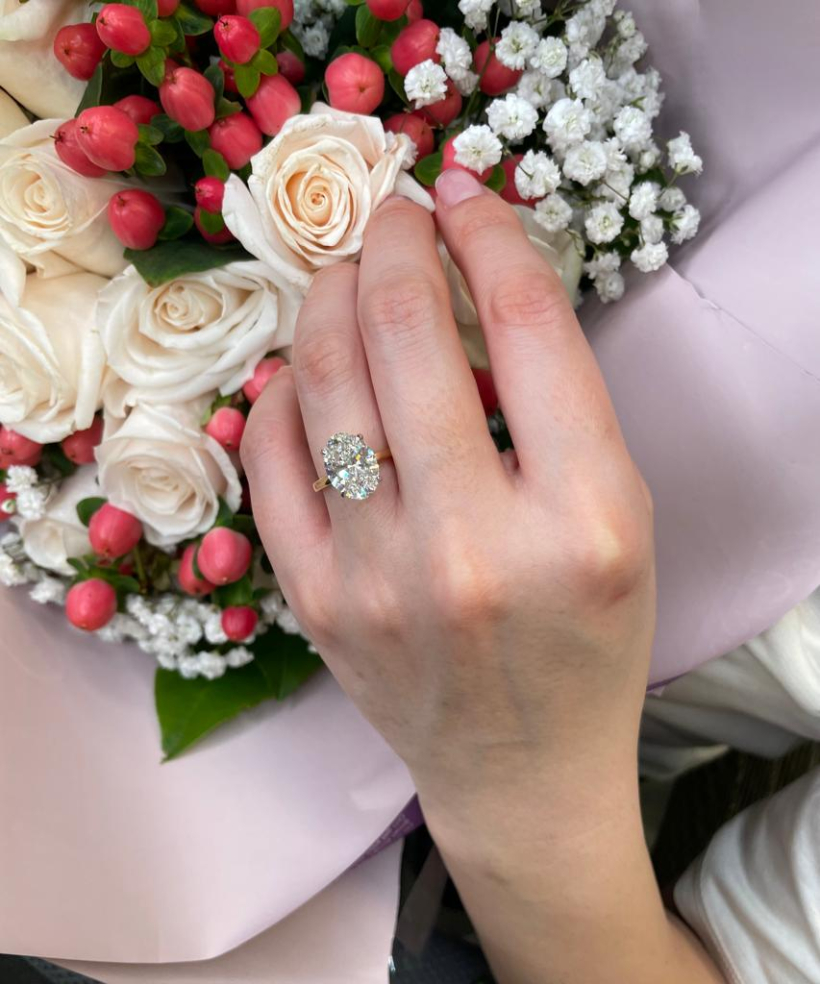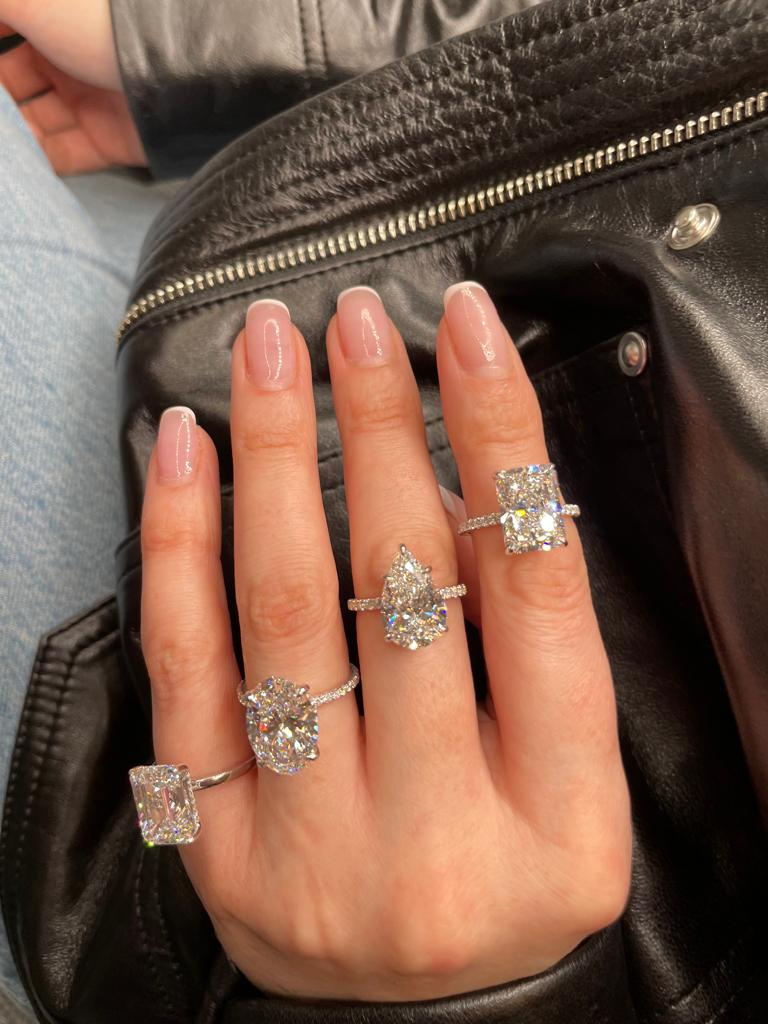There’s nothing pleasant about a broken engagement. Not only do you have to give up on the intention to marry someone important in your life, but you also have to deal with some important, albeit awkward, realities. For example, if you and your ex-fiancé live together, you’ll have to decide how to proceed with new living arrangements. Similarly, if you have already given or received an engagement ring, you and your ex will need to decide who keeps the ring when the engagement is broken.
Traditionally, who keeps the ring in a broken engagement? Do you return the engagement ring after a breakup? Can you take legal action if someone refuses to give an engagement ring back? Finally, if you have a ring from a past relationship, where can you sell your pre-owned engagement ring for a good price?
In today’s guide, we will answer all of these questions and help you decide what to do with an engagement ring after a breakup. So, let’s get started!
When an Engagement Is Broken, Who Keeps the Ring?
Historically, the question of who keeps the engagement ring has not always had a definitive answer. This only makes it harder for people to make a decision in contemporary times. In the past, couples generally relied on cultural norms, legal frameworks, and the personal circumstances of the breakup. Frequently, the outcome was influenced by the reasons for the broken engagement and the fault of the parties involved.
In some traditional societies, if a woman broke off the engagement without good reason, she would be expected to return the ring to her former fiancé. On the other hand, if the man was at fault or ended the engagement without just cause, the woman might be allowed to keep the ring as compensation for the broken promise. In other cultures, the engagement ring was considered a gift, and the woman was allowed to keep it regardless of the circumstances surrounding the broken engagement.
It is important to note that these historical perspectives on engagement rings vary widely based on the specific time period, location, and cultural context. Today, the decision of who keeps the engagement ring after a broken engagement depends on the laws and regulations in the specific jurisdiction, as well as personal agreements and circumstances. We will expand on some of these agreements and frameworks below.
Can I Legally Reclaim an Engagement Ring?
If you bought an engagement ring for your significant other and then the engagement is broken, you may feel justified in reclaiming the ring. In an amicable breakup, you can discuss the issue and come to a resolution that (hopefully) satisfies both parties. However, if the other person refuses to return an engagement ring that you gave them, you may have legal grounds to reclaim it. Here are some factors and circumstances to consider if you choose to pursue legal reclamation:
-
Legal Standing - In some jurisdictions, an engagement ring is considered a “conditional gift.” This means that it was given under the conditions that a marriage would take place. If a marriage does not take place, the person who gave the ring may have the legal right to reclaim it. This holds true in many places throughout the United States. However, in certain jurisdictions, the person who receives the ring may be allowed to keep it, regardless of whether the marriage occurs. It's important to consult the laws in your area or seek legal advice to understand your rights.
-
Fault-Based Considerations - In some cases, courts may consider who was at fault for the breakup when determining who gets to keep the engagement ring. For instance, if the proposer ended the engagement without just cause, the proposee might be allowed to keep the ring. Conversely, if the proposee was unfaithful or “caused” the breakup (as determined by a court of law), the proposer might have a stronger claim to the ring.
-
Prenuptial or Written Agreements - If you have a prenuptial agreement or a written contract regarding the engagement ring, this document will typically dictate who keeps the ring in the event of a breakup. Since these agreements are often made with the help of an attorney or legal advisor, they will often stand up in court and help you reclaim the ring without too many complications.
-
Amicable Agreement - In some cases, you and your ex may decide to come to an amicable agreement about the fate of the engagement ring, which could involve the other party keeping the ring, selling the ring and splitting the proceeds, or returning the ring to you.
Ultimately, the specific circumstances of the breakup and the laws in your jurisdiction will determine who keeps the engagement ring. It is advisable to consult a legal professional if you are unsure about your rights or need assistance resolving the matter.
It’s also important to not allow your emotions to dictate your actions. A broken engagement can be a very difficult time, and much like a divorce, it can be easy to let your emotions control your actions. Even if your partner is unwilling to return the ring, you could end up spending a fortune in legal fees just to get it back. So, weigh your options, talk with your ex, and try to reach a resolution outside of a courtroom before you proceed with any kind of legal action.
Can I Keep My Engagement Ring After a Breakup?
When deciding whether or not to keep an engagement ring that was gifted to you after a breakup, there are various ethical factors to consider. There are no hard and fast rules about what is right or wrong in these circumstances, but there are some factors that could determine what you “should” do in your particular situation:
-
Cause of the Breakup - Reflect on the circumstances of the breakup and who initiated it. If you ended the engagement, it might be more appropriate to return the ring to your former partner. If your partner ended the relationship, you may feel more justified in keeping the ring.
-
Financial Burden - Consider the financial impact of keeping the ring on your former partner. If the ring was a significant financial investment, returning it might alleviate some of the burden.
-
Sentimental Value - The engagement ring might hold sentimental value for both you and your former partner. While you may have emotional attachments to the ring, it's important to recognize that your ex-partner might also have strong feelings about it.
-
Family Heirloom - If the ring is a family heirloom, it's generally considered appropriate to return it to your former partner, as it holds significant sentimental value for their family.
Ultimately, the decision to keep or return the engagement ring after a breakup depends on your individual situation and personal values. Keep in mind that an amicable and empathetic approach may help both parties find closure and move forward as quickly as possible.
Selling Your Engagement Ring After a Broken Engagement
Deciding to sell your engagement ring after a broken engagement can be a difficult and emotional decision. However, it can also be a practical step towards financial recovery and moving on with your life. At HYSTR, we understand the sensitivity of this situation and are here to provide a secure, efficient, and discreet platform for selling your engagement ring. Our commitment to transparency, authenticity, and customer service ensures that you can sell your ring with confidence and ease.
We hope you enjoyed our guide on who should keep the engagement ring after a breakup! Are you currently trying to sell a used engagement ring? If so, be sure to contact HYSTR today!








